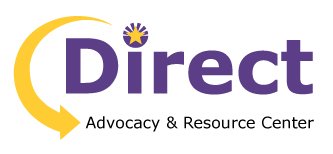A Giant Step Back. The Overturning of Roe vs Wade
With the Supreme Court of the United States (SCOTUS) overturning Roe vs. Wade we mourn the loss of freedom and control over our own bodies and are outraged at the possible potential for global impact.
As explained by the Disability Rights Education and Defense Fund (DREDF), this adverse decision, known as Dobbs v. Jackson Women’s Health Organization, leaves our community vulnerable to the following concerns:
People with disabilities already face barriers to abortion and contraception. Sex ed is not accessible to us. Health care and telehealth are not accessible. Transportation is not accessible.
We are more likely to live in poverty, and we are more likely to rely on the government for health care. Many of us are multiply marginalized.
We are more likely to be sexually assaulted, especially people with intellectual and developmental disabilities.
Some of us have complex medical conditions, and pregnancy is dangerous.
The government already tries to control our lives and our bodies. Disabled people need an abortion.” Read their entire statement.
To learn more about how this judgment affects people with disabilities, the American Association of People with Disabilities and DREDF released a joint memo explaining the connection between abortion rights and the civil rights of disabled persons. Read the memo.
Additionally, and equally alarming is that within minutes of the ruling’s announcement, Justice Clarence Thomas issued an opinion stating that the court “should reconsider” previous decisions regarding contraception, same-sex relationships, and marriage equality.
We should not accept this government failure as a finality but instead, choose to push back on these archaic decisions decisions collectively and begin the necessary work to seek justice and secure necessary human rights.
Further Reading.
Disability Organizations Respond to the Overturning of Roe v Wade.
With Roe Overturned, Advocates Fear Disability Rights May Be Next.
With Roe v. Wade overturned, disabled people worry how they'll be affected.

